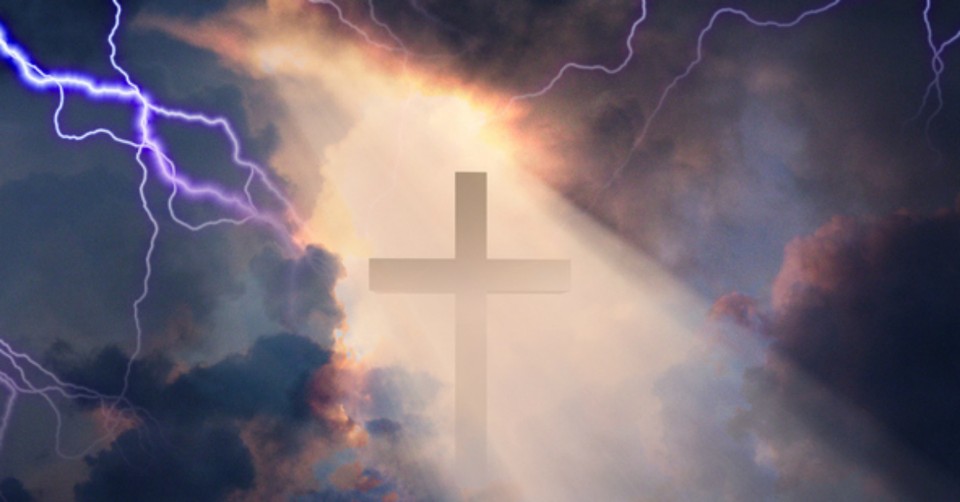How Understanding God's Wrath Helps Prepare Our Hearts for Easter

The topic of wrath — especially God’s wrath — isn’t one that is particularly enjoyable. It is frightening and confusing to many Christians and non-Christians alike, and often a stumbling block for many considering faith. How could God love us so deeply and intimately, and yet be willing to pour out His anger on us? While the topic may be difficult, it is critical to our understanding of God and our relationship with Him. As we look towards Easter, a solid understanding of God’s wrath will serve to deepen our faith while preparing us to truly celebrate.
What Is Wrath?
Let’s first look to the dictionary to explore “wrath.” The Merriam-Webster dictionary describes it as “strong, vengeful anger” and “retributory punishment for an offense or crime.” What does this mean when we are considering God’s wrath? While it is not comfortable or pleasing to think about God being angry, He does get angry. Very angry. The paths He has charted for us are perfect for our health and happiness, and He does not want to see us stray from them.
We want our God to be angry when cruelty, harm, and evil happens here on earth, right? We want Him to be furious with a murderer, enraged by a cheater, and provoked to smother the evil impulses of man. We want a wrathful God because a wrathful God wants the very best for His people. How would we feel if God shrugged His shoulders when awful things happen? Not too good. We want to think of Him as being on our side, loving us and shielding us with all His might.
The fact is, we just don’t like to think of God’s wrath aimed at us!
Wrath’s Connection to Justice
The definition of justice from Merriam Webster is: “the maintenance or administration of what is just especially by the impartial adjustment of conflicting claims or the assignment of merited rewards or punishments.” Sounds good, right? If we look at wrath through the intriguing lens of justice, we can apply a comforting and familiar saying to our examination of wrath: our God is a just God. In fact, you could say that our Almighty God is justice, perfect and complete. He is everything good, and this includes justice — because justice, as defined above, is also good.
To allot justice, you must have a destination for it: a harmful act, behavior, or attitude. Here on earth, man’s law determines the justice to come when one party has been wronged – what the consequence will be for the offending party. In the court of heaven, if an offense is enacted against God or His people, He decides what justice will be meted out, and what the punishment will be.
Would it make sense to have a “just God” who did not actually deliver any justice? No, this would not make sense at all! God is perfection, and therefore His justice is perfect. And remember, God is a god of His word. If He warns us down here on earth again and again to repent, and we decide not to, He will honor His own rules and portion out His wrath, just as He said He would.
How God's Wrath Works
Today, there is an emphasis on a feel-good God who lets us do pretty much as we please. We are uncomfortable being held accountable by God, and we wish He would be more of a situational, relativistic deity – looking at all our circumstances and situations before he wields His power against us. And, in fact, He does know all our circumstances and therefore warns us repeatedly before His wrath is displayed. Like a fair and loving parent, He doesn’t punish us without warning or explanation. In the days of the Old Testament, He reached out through the prophets. In New Testament days, He reached out to us through His son Jesus.
Consider the Old Testament prophet Jeremiah. As a very young man (while most prophets were generally in their thirties when they prophesied, Jeremiah was thought to be around twenty years of age), God told Jeremiah He was going to use him to deliver God’s words to the people. Jeremiah warned the people of Jerusalem and the surrounding areas about many things, including their coming Babylonian captivity, and the grave sin of worshipping idols, which greatly angered God (Sadly, we have idols today, too. Money, work, leisure, and celebrities are just a few of the things we tend to idolize, instead of our Lord!). Jeremiah was steady in his honor of the Lord, trying to get people to understand how badly they were behaving, and how angry it was making God.
“Behold the storm of the Lord! Wrath has gone forth, a whirling tempest; it will burst upon the head of the wicked,” he extolled (Jeremiah 30:23). The young prophet repeatedly warned the people of God’s anger, and with that anger, the sure justice to follow. He prophesied, too, of God’s sovereign and mighty power, saying, “When He utters His voice there is a tumult of waters in the heavens, and He makes the mist rise from the ends of the earth” (Jeremiah 10:13).
Alas, the people did not listen, and God, being perfect in His justice, punished them for their refusal to repent.
It Did Not Get Better in Jesus’ Day
Incredibly, even in the days when Jesus walked the earth, the people still would not listen and repent. The apostle Paul said, “For the wrath of God is revealed from heaven against all ungodliness and unrighteousness of men, who by their unrighteousness suppress the truth” (Romans 1:18).
God’s much-beloved son Jesus directed the people, “Repent, for the kingdom of heaven is at hand” (Matthew 4:17). He also said, “I have not come to call the righteous but sinners to repentance” (Luke 5:32). Jesus repeatedly warned everyone to repent while also telling them of God’s enduring love for them, and tried to change their hearts to seek not a political king, but instead a heavenly one. He explained clearly the attributes we are to strive for with the Beatitudes. Eternity was always on his mind and heart, and he worked and prayed to create a future for all with God. He understood God’s wrath, and thus called for repentance.
Through the ages, however, although God has reached out in loving and caring ways, we have continually ignored Him, pleasing ourselves and make up our own rules and even our own God. Our imaginary view of God constantly changes His laws to meet our needs, excuses all our faults and bad behaviors, and yet loves us intimately and jealously.
Think about this: We all know those parents that are simultaneously deeply loving and also totally blind to their kids’ bad behavior. We also know those kids generally don’t turn out too well. Discipline is a critically important part of deep parental and Fatherly love.
Are We Really So Bad as to Deserve This Wrath?
As we previously discussed, today we are busy making God change to at least “meet us halfway.” We consider repentance less, and His mercy more. We don’t want to turn up to church on a Sunday to hear how bad we are, right? We are much more comfortable hearing about how precious we are to God, and how He will always have our backs.
Ironically, we are missing God’s love if we don’t consider His wrath. God was so wanting our love and obedience that he sent down someone infinitely precious to Him to explain His ways and make His case – His own beloved son. It is this we consider as we meditate on Easter.
Here’s the truth, and it is staggering: If God’s wrath is not important and our sin is not so bad as to need intervention, then Jesus wouldn’t have had to die. That is an overwhelming and humbling thought: our sin is so bad that God’s own son would have to sacrifice his life to atone for it!
Let’s loop justice back in. Since God’s justice is perfect, He needs atonement for sin, and in the Old Testament, this was in the form of animal sacrifice. Jesus made himself a sacrifice, willingly taking all our human sin – that which defiles, degrades, and destroys – onto himself. He died with thieves nailed to a rough wooden cross.
What perfect obedience! He asked that this horrendous cup of death might pass him by and accepted his Father’s answer. What an unthinkable gift; what outsized, unsurpassed love Jesus gave us, and gives us still.
Understanding Wrath Helps Us Celebrate the Good News
As we prepare for Easter, and the miracle that was Jesus rising from the dead, ensuring us of an eternity with God and the bedrock truth of the scriptures, let us not forget wrath and its necessity when considering the ways of God. We need God to correct us and guide us, and we need to be wary of incurring God’s wrath and bringing down that perfect justice He can, and will, deliver.
But first, like that parent who loves us so much, God has filled us with knowledge of His will and warnings of His anger and seasoned it all with His enduring mercy and forgiveness when we do repent. He wipes our slate clean, and our sin is forgotten. We are in the most beautiful relationship we will ever know, if we look at it clearly and honestly. As we celebrate Easter this year, may we strive to please God even more, ensuring His mercy, blessings, and everlasting love.
Photo Credit: ©GettyImages/bestdesigns

Originally published February 26, 2021.




